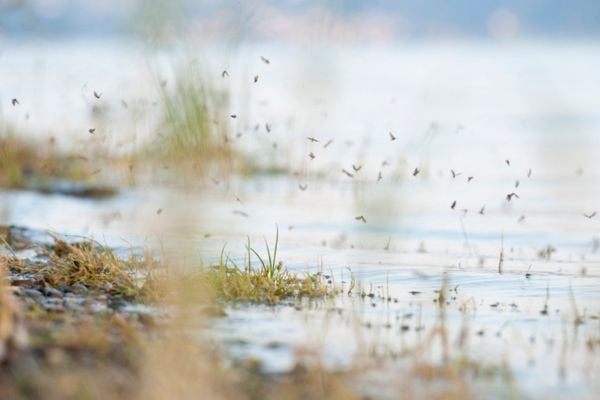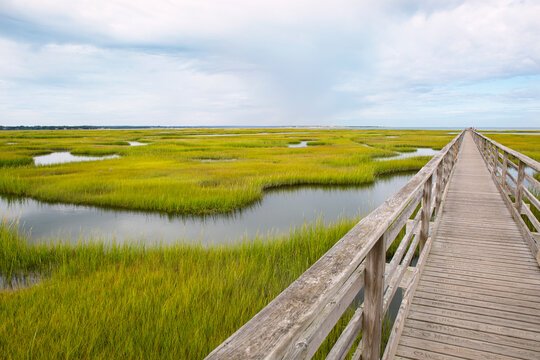Why Are Mosquitoes So Bad in Cape Cod This Year?
How Rainfall, Humidity, and Salt Marshes Continue to Drive Rising Mosquito Populations
This year in Cape Cod, mosquito season arrived early — and conditions have only intensified as summer has progressed. We’ve seen a noticeable surge in mosquito presence across many towns, with residents reaching out about increased activity around their properties. Populations have been steadily rising year after year, as shifting weather patterns continue to create more favorable conditions for breeding.

Several factors have contributed to this year’s high mosquito activity, most notably the heavy rainfall in April and May. These spring and early summer rains led to an increase in standing water, which created ideal breeding grounds for mosquitoes. The rain also caused many rivers and water sources to rise and overflow into floodplains, a particular concern in Cape Cod due to the abundance of saltwater marshes. One species in particular, Aedes sollicitans, thrives in salt marshes and is known for being an aggressive daytime biter capable of traveling long distances in search of a blood meal.
In addition to heavy rainfall, this summer has also brought consistently warm and humid conditions. High humidity extends mosquito lifespans and increases their activity, especially during early mornings and evenings. When the air stays moist and the nights remain warm, mosquito populations are able to breed and spread more rapidly.
Pure Solutions Cape Cod Manager, Dan, has observed the increase in mosquito activity firsthand. “We’ve seen mosquito pressure get worse every season for years now, especially on properties near water sources like marshes, ponds, and areas with poor drainage,” he says. “These environments are ideal for mosquito breeding, and the heavy spring rains this year only made conditions more favorable.”
Dan also noted that certain towns may be seeing higher mosquito populations than others. “There’s been a steady increase in activity in Wellfleet over the past few years, and now that trend is extending south into Eastham and north into Truro,” he explains. “We’ve also noticed a noticeable uptick in Chatham.” For those experiencing this surge, we’re recommending more frequent treatments during the peak season to maintain effective control.

Officials from the Massachusetts Department of Public Health (MDPH) recently confirmed the season’s first case of West Nile Virus (WNV) in Cape Cod. The positive sample was collected in Falmouth on June 24, notably early in the season, according to state officials. In 2024, 10 people in Massachusetts tested positive for West Nile Virus. As for Eastern Equine Encephalitis (EEE), while no cases have been reported yet this year, four people tested positive for the virus in 2024. EEE outbreaks typically follow a two- to three-year cycle, and the last significant outbreak occurred in 2019–2020, when Massachusetts recorded 12 cases and six deaths. Given this cycle, it’s important to remain vigilant as we could see more cases emerge this year.
If you’re noticing an increase in mosquito activity on your property, contact Pure Solutions to schedule a consultation or learn more about our all-natural mosquito control programs for Cape Cod homes.
Sources:
Cape Cod Mosquito Control Project. (n.d.). https://www.ccmcp.net/
Mancini, R. M. (2025, June 16). How bad could mosquito season be in Mass.? for some, it’s already itchy. MassLive. https://www.masslive.com/news/2025/06/how-bad-could-mosquito-season-be-in-mass-for-some-its-already-itchy.html
McCarron, H. (2025, June 27). Falmouth Mosquito Trap turns up West Nile virus. Cape Cod Times. https://www.capecodtimes.com/story/news/healthcare/2025/06/27/west-nile-virus-mosquitoes-falmouth-cape-cod-mosquito-control-project-mass-department-public-health/84383474007
Rutgers University. (n.d.). Aedes sollicitans . Center for Vector Biology. http://vectorbio.rutgers.edu/outreach/species/sp7.htm
